detail profile philippe lehembre
Peran Yang Di Mainkan Philippe Lehembre
 1968 and 1969 in Paris during and after...
1968 and 1969 in Paris during and after...Regular Lovers 2005
1968 and 1969 in Paris: during and after the student and trade union revolt. François is 20, a poet, dodging military service. He takes to the barricades, but won't throw a Molotov cocktail at the police. He smokes opium and talks about revolution with his friend, Antoine, who has an inheritance and a flat where François can stay. François meets Lilie, a sculptor who works at a foundry to support herself. They fall in love. A year passes; François continues to write, talk, smoke, and be with Lilie. Opportunities come to Lilie: what will she and François do?
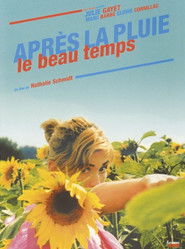 Rose Bonbon a small singer of...
Rose Bonbon a small singer of...Après la pluie, le beau temps 2003
Rose Bonbon, a small singer of light variety with a naughty and colorful imagination, is in the glue with Roger, a characterful brute who thinks he is a manager. Between shabby hotels and cheap restaurants, she meets the handsome Dubel, an impresario on the sidelines. He hires Rose at the drop of a hat because he has to replace Hermine Zibeline for a tour in the Paris region with the famous Billie Boys from Broadway.
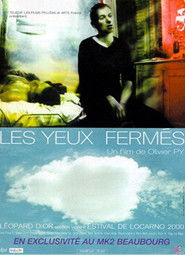 Vincent and Olivier have an intense...
Vincent and Olivier have an intense...Closed Eyes 2000
Vincent and Olivier have an intense, rocky relationship: Vincent evades tenderness, just as he does desire, forcing the couple to hunt for a third partner to participate in their sexual games. Olivier has a background in the theater. He believes in, but is preoccupied by their relationship; he wants to free Vincent from the ghosts haunting him. But Vincent is locked into the past. His father, a pilot, was killed in a plane accident. Vincent’s job is a strange, uncommon one that plunges him deep into contemplation from which no one can make him budge: he deciphers plane disaster recordings. Vincent’s unconscious repression is so powerful that he hasn’t even recognized the link between his father’s death and his work. It will take the stormy encounter with Olivier for Vincent to obtain his ‘black box.’ Indeed, the two young men come to life through their connection with each other, a connection which shatters the framework of typical love stories.
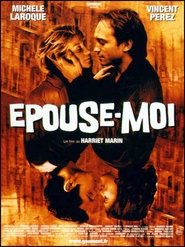 Oriane and Hadrians couple is going...
Oriane and Hadrians couple is going...Marry Me 2000
Oriane and Hadrian's couple is going through a crisis. Determined to save their marriage, Oriane visits a Gypsy fortune teller who foresees a dark future. But Oriane won't hear of anything but a happy ending and the psychic is forced to read another future which, unfortunately, also happens to end bitterly. Will the third reading satisfy the young woman?
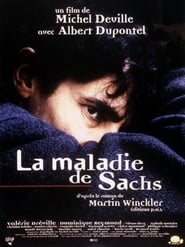 Dr Bruno Sachs the only medical...
Dr Bruno Sachs the only medical...Sachs' Disease 1999
Dr. Bruno Sachs, the only medical practitioner in a small French town, seems on the surface to be compassionate and dedicated. However, in private he is not happy in his work and does not like most of his patients. Here he meets Pauline Kasser, a young woman, and they are attracted to each other...
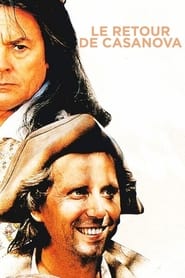 After many years of rambling across...
After many years of rambling across...The Return of Casanova 1992
After many years of rambling across Europe the aging Giacomo Casanova is impoverished. He wants to return to the Republic of Venice but he doesn't dare going there directly because he was a fugitive when he left. While he tries to find a way to get a pardon he meets a young lady named Marcelina. The more he shows his affection, the more ostentatiously she rejects him. Even so he doesn't give up on her because her lover Lorenzo has grave gaming debts. In return for the required money Lorenzo tells Casanova about a looming secret rendezvous with Marcelina. Moreover he lets Casanova take his place. Undercover of the night Casanova finally seduces her. Lorenzo later feels his honor was besmirched and demands satisfaction. Casanova kills him in a duel and then goes home to Venice.
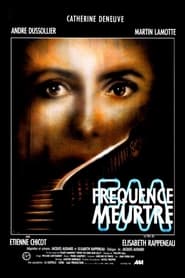 Jeanne Quester is a psychologistontheairwaves in...
Jeanne Quester is a psychologistontheairwaves in...Frequent Death 1988
Jeanne Quester is a psychologist-on-the-airwaves in a radio station. She got a raw deal when she was a child.
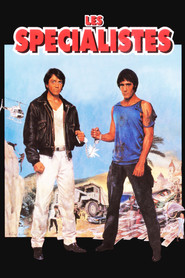 While being transferred to another prison...
While being transferred to another prison...The Specialists 1985
While being transferred to another prison, two convicts - Stéphane Carella and Paul Brandon - effect a miraculous escape. They are pursued across the Verdon Gorge before arriving at an isolated farmhouse whose owner, Laura, offers them sanctuary. Since the death of her husband, Laura has longed to get her own back on the police and she agrees to help Carella and Brandon in their scheme to rob a casino in Nice. After a shoot out with the casino’s owners, Carella realises that not everything is what it seems. Brandon is not what he appears...
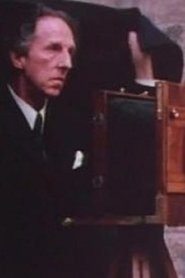 Meet Frances mysterious master of photography...
Meet Frances mysterious master of photography...Eugene Atget: Photographer 1982
Meet France’s mysterious master of photography, neglected in his own lifetime but since feted for helping position the medium as an art form, and as an inspiration to surrealists. This meditative Arts Council documentary introduces Eugène Atget, a former actor who began to document the streets of old Paris from the 1890s. Little is known about his early life and the three decades he spent capturing, in eerie tableaux, urban spaces since lost to progress. The film includes dramatised scenes from his life, including his belated ‘discovery’ by American photographers Man Ray and Berenice Abbott, who published many of Atget’s works after his death in 1927.
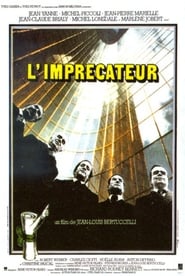 In this sardonic comedy after an...
In this sardonic comedy after an...The Accuser 1977
In this sardonic comedy, after an executive is killed in a mysterious automobile accident, the French offices of his multinational company is inundated with mysteriously threatening be-ribboned anti-capitalist tracts, delivered overnight to everyone's desks. Later, the executive's body is brought to company offices for an official wake -- only no one at the company has ordered that such a thing be done. A mysterious prankster, who is able to imitate the voice of the company's president, has arranged these things. When Americans from the head office get wind of these developments, they institute a search for the perpetrator which leads to mysterious subterranean passages under the company's skyscraper.

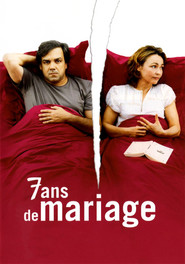 After seven years of marriage a...
After seven years of marriage a... Set in France at the end...
Set in France at the end... The film tells the story of...
The film tells the story of...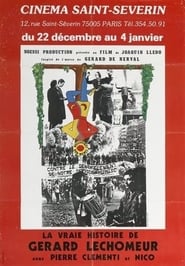
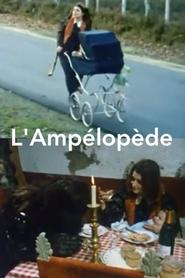 In a village located in the...
In a village located in the...